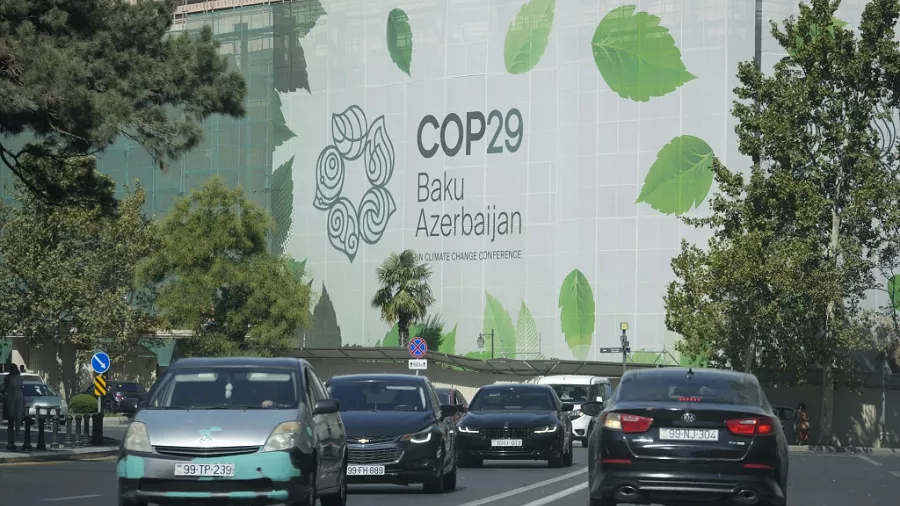
As extreme weather events continue to escalate, the cost of responding to and mitigating climate change has soared, leaving vulnerable nations struggling to cope. With the global climate summit set to begin in Azerbaijan on Monday, countries are being urged to significantly ramp up their financial commitments to address the worsening crisis. The summit will serve as a crucial platform to establish a new global climate finance goal, an effort that has become more urgent than ever.
Zinta Zommers, the climate science and practice lead at the UN Office for the Coordination of Humanitarian Affairs (OCHA), emphasized the importance of this summit in addressing the growing gap in climate finance. She highlighted the need for a new funding model to better support countries most affected by climate impacts. “This year’s COP is the climate finance COP,” Zommers said, referencing the annual climate conference that brings together world leaders and policymakers to address global environmental challenges. “In 2009, developed countries committed to providing $100 billion per year to help vulnerable countries take climate action. But as greenhouse gas emissions have risen and climate impacts have intensified, it is clear that more finance is needed.”
The urgency of this funding is especially apparent in regions like West and Central Africa, where devastating floods have displaced millions of people. In the past year alone, over 7 million people across 16 countries in the region have been affected by flooding, the worst of which has hit nations such as Sudan, Nigeria, Niger, Cameroon, and Chad. Scientists have linked these increasingly severe downpours to human-driven climate change, which has made seasonal rains in the Niger and Lake Chad basins 5-20 percent worse in 2023. These intensified weather patterns have unleashed a humanitarian disaster, overwhelming local governments and humanitarian organizations struggling to provide relief.
Zommers pointed out that, despite significant efforts, current funding remains far from sufficient. “The UN Central Emergency Response Fund allocated over $38 million to address these floods, but that is clearly not enough,” she said. Experts estimate that the world needs over $4 trillion a year in climate finance to meet the growing demands for mitigation, adaptation, and emergency response to climate shocks. Without sufficient funding, many vulnerable countries risk being left behind in the global effort to combat climate change.
While the need for climate finance is clear, the ongoing debate over who should contribute and how much remains unresolved. Developing nations argue that wealthier, industrialized countries—who have historically contributed the most to global greenhouse gas emissions—should bear a larger share of the financial burden. These countries, many of which are already grappling with the consequences of climate change, point to the historical responsibility of developed nations in causing the climate crisis.
This imbalance in responsibilities has been a contentious issue in climate negotiations for years. Developing countries, which are often the most vulnerable to climate impacts, have called for richer nations to honor their financial commitments and increase their contributions to help them build resilience and adapt to changing climates. These calls for equity are especially critical in light of the increasing frequency of extreme weather events, which have disproportionately affected the Global South.
As the summit approaches, the focus will be on finding solutions to these complex questions of responsibility and funding. The international community must come together to create a new framework for climate finance that can better address the needs of the most vulnerable countries. There is growing recognition that the costs of inaction will be far greater than the investments needed to avert the worst impacts of climate change.
Zommers also underscored the importance of improving the efficiency and accessibility of climate finance. “We need to rethink our approaches to refugee displacement, adaptation, and humanitarian response to make them more sustainable,” she said. With the stakes higher than ever, the upcoming summit in Azerbaijan is expected to set critical new goals for climate finance that can help mitigate the devastating impacts of climate change on vulnerable populations worldwide.
In addition to the financing challenges, the global community must address the structural inequalities that make some countries more susceptible to climate disasters. As the summit in Azerbaijan progresses, world leaders will need to confront these issues head-on, recognizing that climate change is not just an environmental crisis, but a matter of justice and equity for the world’s most vulnerable populations. The outcome of this summit could shape the future of international climate cooperation and set a new course for addressing the challenges of our changing world.







